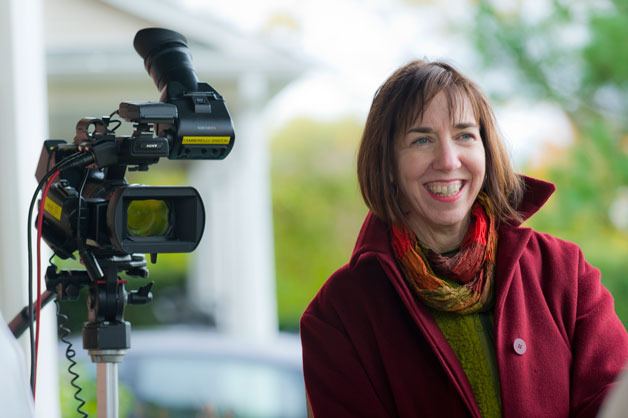It’s a universal worst nightmare scenario.
A community member is killed by a violent gang for no reason other than their ethnicity, sexual orientation or religious beliefs.
It happened to a local immigrant in a small village on Long Island in New York in 2008 and, since then, that village has never been the same.
That year, a series of attacks against Latino residents of Patchogue, N.Y. culminated with the hate-crime killing of Marcelo Lucero, an Ecuadorian immigrant who had lived in the Long Island village for 13 years. Seven local teenagers were arrested for the attack and one was charged with murder.
“Not In Our Town: Light in the Darkness” is a documentary by filmmaker Patrice O’Neill that follows the town’s mayor, the victim’s brother and Patchogue residents for two years as they openly address the underlying causes of the violence, work to heal divisions and begin taking steps to ensure everyone in their village will be safe and respected.
In honor of a national week of action against hate crimes, the Freeland Library will host a screening and discussion of “Not In Our Town: Light in the Darkness” at 2 p.m. Sunday, Sept. 18 at the library. The discussion will be facilitated by B.J. Elliott, a long-time resident of South Whidbey and participant in “Women in Black,” a world-wide network of women committed to peace and actively opposed to injustice, war and other forms of violence.
While starkly revealing the trauma of hate, the film provides a blueprint for people who want to do something before intolerance turns to violence.
“We want people to see the film and get some feedback about their reactions to it,” Elliott said.
The film explores a broad spectrum of hate crimes, she said, and how to prevent such attitudes from ever taking root. There are questions she hopes the film will spark.
“Would it happen here? What are people willing to do to prevent it from happening?” Elliott asked.
“The film raises a lot of questions and feelings. It’s a reaction to the sadness the families felt after the boys ended up in jail for their crime. These things can happen just out of boredom or from lack of parental guidance.”
Elliott said that even though the South End is a community in which most people feel safe, there is always the possibility of hate anywhere. The recent closing of the South End Youth Connection’s “The Hub,” an after-school drop-in center for teens, worries Elliott.
“There needs to be somewhere to give the kids a safe place to be,” she said.
Such safety measures start with educating the public about the undercurrents of hate that may go unchecked no matter where one lives.
The “Not In Our Town” campaign combines public television broadcasts sponsored by PBS with grassroots events, educational outreach and online activities to help communities battling hate to talk to — and learn from — each other.
O’Neill is the executive director of the Working Group, the creators of “Not In Our Town,” and the series’ executive producer. With support from Google, her team designed an interactive map at www.NIOT.org with flashing hot spots in different colors delineating towns where hate crimes have just occurred, and others where communities are taking action against hate. Clicking on a hot spot provides information about the crimes and activities taking place there and the related actions people are taking against those crimes.
By sharing and uploading evidence of successful public activism through cell phones, videos or texts, a town can convert its color and join the NIOT community. Other aspects of the site include a video advocacy toolkit, online resource sharing and a national calendar of events.
The screening in Freeland is part of the “Not In Our Town National Week of Action,” held from Sept. 18-24. During the Week of Action, communities across the country will use the film to find ways to prevent hate crimes and anti-immigrant violence.
For more information about the event, call the library at 331-7323. The Freeland Library is at 5495 Harbor Ave.



